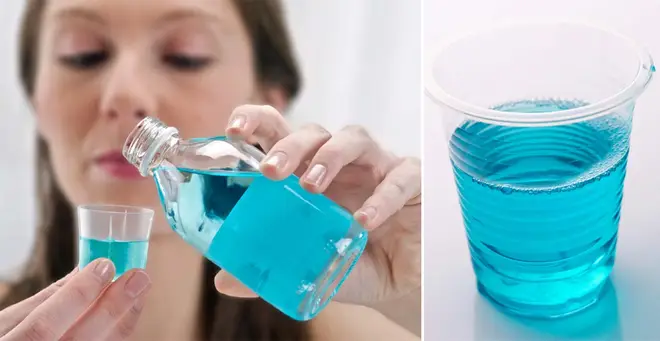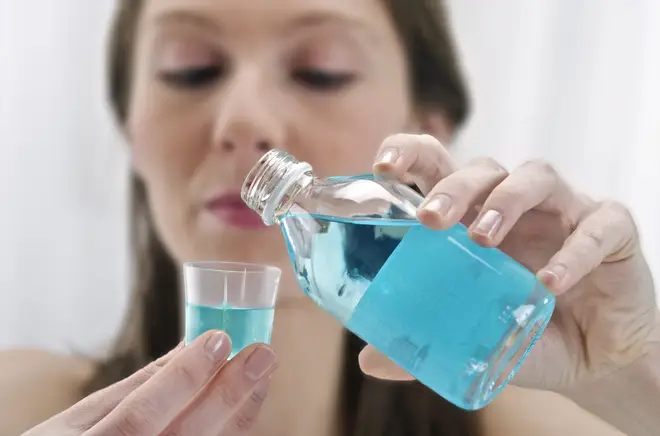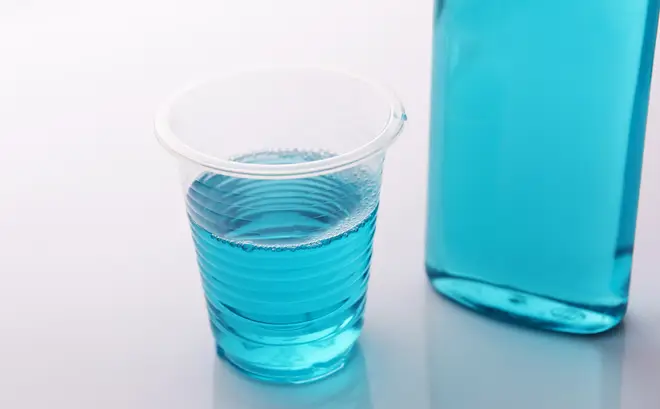Can mouthwash protect against coronavirus? Scientists call for urgent research
15 May 2020, 14:16 | Updated: 15 May 2020, 15:20

There is currently no evidence to suggest that mouthwash can help protect against coronavirus, but some scientists have called for urgent research to be done.
Scientists have called for research into whether mouthwash can help reduce the transmission of Covid-19, as previous studies have claimed that some oral rinses can disrupt the fatty membranes of other viruses.
Academics at Cardiff University have conducted a review of previous scientific research on the effects of mouthwash and other viruses, which have shown that ingredients such as low amounts of ethanol, povidone-iodine and cetylpyridinium could help to inactivate them.
Read more: Over 25 per cent of the UK 'may have had coronavirus', experts claim
They have called for urgent research on whether certain mouthwashes could work similarly for Covid-19.
Here's what we know so far.

Does mouthwash kill coronavirus?
There is no evidence to suggest that mouthwash kills coronavirus.
The World Health Organisation (WHO) states that there is no evidence to suggest that gargling the product will help protect you against coronavirus in any way.
However, scientists have cited other studies into mouthwash's ability to dismantle certain viruses, and called for more research to be done.
Read more: Coronavirus antibody test that could help ease lockdown approved in UK
The authors of the Cardiff University-led International peer-reviewed study wrote in the Function journal: "We highlight that already published research on other enveloped viruses, including coronaviruses, directly supports the idea that further research is needed on whether oral rinsing could be considered as a potential way to reduce transmission of SARS-CoV-2."
And Professor Valerie O’Donnell, the lead author and co-director of Cardiff University’s Systems Immunity Research Institute, added: "Safe use of mouthwash – as in gargling – has so far not been considered by public health bodies in the UK.
"In test tube experiments and limited clinical studies, some mouthwashes contain enough of known virucidal ingredients to effectively target lipids in similar enveloped viruses.

"What we don’t know yet is whether existing mouthwashes are active against the lipid membrane of SARS-CoV-2.
"Our review of the literature suggests that research is needed as a matter of urgency to determine its potential for use against this new virus.
"This is an under-researched area of major clinical need - and we hope that research projects will be quickly mobilised to further evaluate this."

Boris Johnson reveals his end of lockdown plan in-full
What else have researchers said?
The researchers from Cardiff University’s School of Medicine, as well as academics at the universities of Nottingham, Colorado, Ottawa, Barcelona and Cambridge’s Babraham Institute, have all stressed that there is no evidence that mouthwash does protect against the illness.
Academics have said that the public should continue to follow government guidelines.
NOW READ:






















